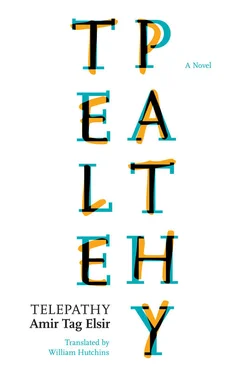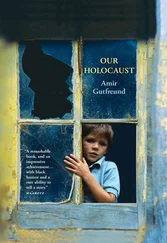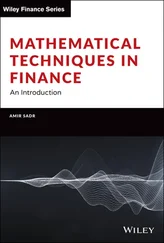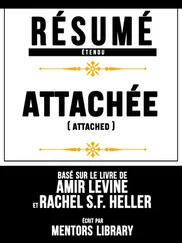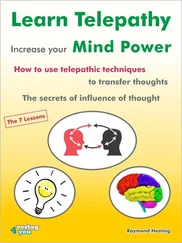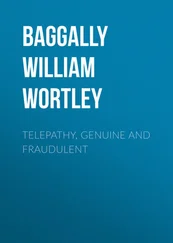When I wrote my latest novel, Hunger’s Hopes , in only about a month, driven by its many inspirations and multiple twists and turns, which suddenly and effortlessly revealed themselves to me, I never imagined it would bedevil me with an apparently intractable problem, that I would be pursued by the nightmare of its associations, or that despite all my efforts, I wouldn’t be able to escape.
I had returned from a splendid trip to Kuala Lumpur, an Eastern city that had stirred me profoundly and that I hoped to write about one day to capture its mischievous vigor. There I met cultural luminaries, capitalists, teachers, women of the night, and bums in the street. A number of personalities I encountered intrigued me, and in their distinctive appeal I recognized prototypes for characters in a novel, ones that would enrich any novel. Liyung Tuli, or Master Tuli as they called him, was one of these potential characters who dazzled me. He was an extremely well-known acupuncturist, and I noted his fitness despite his age, his very sincere smile, his extreme elegance, and the way he shed light on an ancient Chinese profession. The secretary at his clinic, Anania Faruq, whose nationality I did not know for sure — a common occurrence within the mix of ethnicities in that tumultuous city — was also a memorable character. Her unusual height, her heavy use of cosmetics such as green and red eye shadow, her dresses that did not defer to any known style, her shoes fashioned from canvas and reinforced cardboard, and the army of patients and their companions who flirted with her overtly or silently, made her a living model for an Eastern princess who undertook an impetuous journey to a repressed Arab land — in a novel that had to be written someday.
I also met the erstwhile American academic Victor Grayland, who had become Hoshi Hisoka, a professor of music in a Japanese institute. He was a truly amazing guitarist, who, as he put it, performed for children and their mothers anytime, anywhere. He had left his native country in 1977, never to return. We became acquainted in a narrow corridor in the Chinese market which was packed with merchandise, people, and trinkets. In a number of subsequent meetings, we debated the question of his identity at length — how someone who had been born in America and had lived there till he was forty could become an honest-to-goodness Asian bearing an ancient Japanese name that meant warrior.
This academic was an old man but vigorous and so slender that he seemed a specter. His presence in Malaysia was part of his regular routine; he visited every year because he loved it madly and because he was a patron of Tuli’s acupuncture clinic. As he himself said, he had never suffered from any ailment that required placing needles in his head, hands, or legs and hoped to reach one hundred standing on his own two feet. Acupuncture was merely an annual prophylactic for him. He always returned to his adopted homeland better equipped to deal with life after this treatment. His philosophy about erasing his Western identity and acquiring a different, Eastern one was simply that when you love, respect, and offer the East valuable services, it will never forget you. It weeps for you fondly when you pass; you will find some old man beside whom you sat in a public garden or a compartment of a high-speed train walking with his head bowed in your funeral procession, and the eleven-year-old daughter of your neighbors will place flowers on your grave at every propitious occasion. It was precisely the opposite in his native country, where geniuses, discoverers, and space pioneers died daily — as a result of traffic accidents, brain clots, and sniper fire in the streets — without anyone missing them.
To my way of thinking, his theory was dotty and based on weak arguments, but I didn’t debate it much. I knew the man was a Leftist who opposed capitalism and what he termed America’s foolhardy policies. He considered the country’s numerous wars — especially the Vietnam War and more recently the invasions of Afghanistan and Iraq — to be major offenses that even the greatest historical eraser could never wipe away.
Strange stories cluster around Bukit Bintang Street in the center of Kuala Lumpur. Referred to by Arabs themselves as the Arabs’ Street, it harbors Eastern and Western restaurants, giant shopping malls, and massage parlors, which can turn at any moment into dens of vipers. The beggars tint their bodies every color of the rainbow. Tourists stagger under the sensory assault: displays of Canon, Nikon, and Yashica cameras, accordion and saxophone players, and shredding guitarists who stage rowdy music parties at street corners, traffic lights, and all the people who cluster together or go about their business.
I was fascinated by the numerous coffeehouses. I hoped to become addicted to one of these (or have one addict me to it) so I would come to it daily to write — the way I do in my country — but that didn’t happen, sadly, because I was so busy throughout the trip.
Everything inspired me and motivated me to write.
I returned home delighted with all these memories, feeling my blood pumping, my juices flowing, and expecting a new novel to steal over me at any moment. During my ordinary, daily life, when I lacked inspiration, I would be fortified by these memories; I actually prepared myself to be ravished by this new novel.
I thought that Master Tuli, the practitioner of Chinese acupuncture, would probably become a practitioner of passion’s fire in the chest of a vanquished lover or that the heroine would have fallen in love but been conquered, against her will, by another. She might be the secretary Anania Faruq, that savage princess who sauntered down savage lanes, searching for a man she had seen for a moment in a primitive museum and had never forgotten. Hoshi Hisoka, the Leftist, would be a professor of political science at a university overflowing with students and the instigator of a giant revolution that would blow through my writings and bring a mighty dictator to power.
I considered transferring all the commotion of the streets and public gardens to my country, which is stagnant even though it suffers from numerous hardships. Effendi Irfan, the taxi driver who was my companion throughout my stay there, would definitely make an appearance. He immersed me in details of his past and present life and shared his desire, long postponed, to perform the duty of the Hajj pilgrimage. He would be a driver here too but of a different vehicle — one that was grimy and pathetic, a marked contrast to the type of richly appointed vehicle he had driven all his life.
But none of this happened, and there’s no hope it will now that I’m embroiled in the entanglements of Hunger’s Hopes . I certainly never thought it would turn out to be such a dangerous novel when, with unconscious exultation, I wrote it.
Three months before I traveled to Malaysia I published Hunger’s Hopes with a local publishing house. A medium-sized novel consisting of 220 pages, it discussed in a purely imaginary way, which bore no relationship to reality whatsoever, a man in his forties named Nishan Hamza Nishan. Illiterate most of his life, Nishan worked as a messenger in an elementary school, where his job was to prepare tea and coffee, to fetch the teachers’ breakfast, and to race between the different offices with a folder, documents, or requests. With unusual perseverance he had taught himself to read and write and had obtained his elementary, middle school, and secondary certificates, completing the last of them not long after he turned forty-five. Shortly before he was to enter university, after deciding to study law and become a judge, he contracted seasonal schizophrenia, which ran in his family and which afflicted him for a month or two every year. He would hear imaginary voices calling him. He would experience internal conflicts and pick fights with people, with life. He made ragdolls, stuffed them with explosives, and tossed them at elegant men and pretty girls in the streets. He might carry a sharp knife and attack random people with it. He might also wear a mask portraying a public figure such as the country’s president or chief justice, or even a famed fruit seller or tailor, and then act as if he were that person. When the symptoms of schizophrenia disappeared or gradually diminished, he would return to his ordinary life, remembering only what people recounted and apologizing to everyone who had suffered during his frenzies. He would resume his perpetual efforts to study law.
Читать дальше
